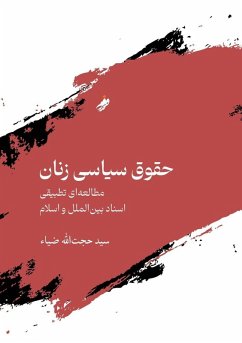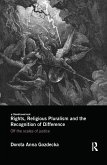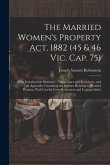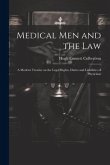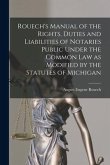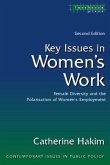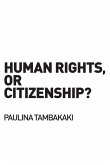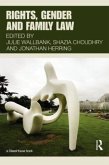¿¿¿¿ ¿¿¿¿ ¿¿¿¿¿ ¿¿¿¿: ¿¿¿¿¿¿¿¿¿ ¿¿¿¿¿¿ ¿¿ ¿¿¿¿¿ ¿¿¿¿¿¿¿¿¿¿ ¿ ¿¿¿¿¿¿ ¿¿¿ ¿¿¿ ¿¿¿¿¿¿¿¿ ¿¿¿¿ ¿¿¿¿¿¿¿¿ ¿¿ ¿¿¿ ¿¿¿¿¿¿¿¿ ¿¿¿ ¿¿¿¿¿ ¿¿¿ ¿¿¿. ¿¿¿ ¿¿¿ ¿¿ ¿¿¿¿¿¿¿ ¿¿¿¿ ¿ ¿¿¿¿¿¿¿¿¿ ¿¿ ¿¿¿¿¿ ¿¿¿¿¿¿¿¿¿¿ ¿¿¿¿ ¿¿¿¿¿ ¿¿¿ ¿¿¿ ¿ ¿¿¿¿ ¿¿¿¿¿¿¿¿ ¿¿¿¿ ¿¿¿¿¿ ¿¿¿¿ ¿¿¿¿¿¿¿ ¿ ¿¿¿¿¿ ¿¿ ¿¿ ¿¿¿¿¿ ¿¿¿¿¿¿¿¿¿¿ ¿¿¿¿ ¿¿¿¿ ¿¿¿¿¿¿ ¿¿¿¿ ¿¿¿.¿¿¿¿ ¿¿¿¿ ¿¿ ¿¿¿¿¿¿¿¿ ¿¿¿¿¿ ¿ ¿¿¿¿¿¿¿ ¿ ¿¿¿¿¿¿¿¿¿ ¿¿¿¿ ¿¿ ¿¿¿¿ ¿¿¿¿¿ ¿¿ ¿¿¿¿¿¿ ¿¿¿¿¿¿ ¿¿ ¿¿¿¿¿¿¿ ¿¿¿¿¿¿¿¿¿¿¿ ¿¿ ¿¿¿¿¿¿¿¿¿¿ ¿¿¿¿ ¿¿¿¿ ¿¿¿. ¿¿ ¿¿¿¿¿¿ ¿¿ ¿¿¿¿¿ ¿¿¿¿¿¿¿ ¿¿¿¿¿ ¿¿¿¿ ¿¿ ¿¿¿¿ ¿¿¿¿¿ ¿¿¿¿ ¿¿ ¿¿¿ ¿¿¿¿ ¿ ¿¿ ¿¿¿¿¿¿ ¿¿¿¿ ¿¿ ¿¿¿ ¿¿¿¿ ¿¿¿¿¿ ¿¿¿¿¿¿ ¿¿¿. ¿¿¿¿¿¿¿ ¿¿ ¿¿¿ ¿¿¿¿¿ ¿¿ ¿¿¿¿¿ ¿¿¿¿ ¿¿¿¿¿ ¿¿¿¿ ¿ ¿¿¿¿ ¿¿ ¿ ¿¿ ¿¿¿¿ ¿¿ ¿¿¿¿¿¿¿¿¿ ¿¿¿¿ ¿¿ ¿¿¿¿ ¿¿¿¿¿¿¿ ¿¿¿¿¿¿ ¿¿ ¿¿¿¿¿ ¿ ¿¿¿¿¿¿¿¿ ¿¿¿¿¿ ¿¿¿¿ ¿¿¿ ¿¿ ¿¿¿¿¿ ¿¿¿¿ ¿¿ ¿¿¿¿¿¿ ¿¿¿¿¿¿.¿¿ ¿¿¿¿ ¿¿¿¿¿¿¿¿¿ ¿¿¿ ¿¿¿¿¿¿ ¿¿¿¿¿¿¿¿ ¿¿¿¿¿¿¿¿¿ ¿¿ ¿¿¿¿¿¿¿¿ ¿¿¿¿ ¿¿¿¿¿ ¿¿¿¿¿¿¿ ¿¿¿ ¿¿ ¿¿ ¿¿¿¿¿¿¿¿ ¿¿¿ ¿¿¿¿ ¿¿¿¿¿¿ ¿¿¿¿¿. ¿¿ ¿¿¿ ¿¿¿¿¿ ¿¿¿¿¿ ¿¿¿¿ ¿¿¿¿¿ ¿¿¿¿¿ ¿¿ ¿¿¿¿ ¿¿ ¿¿¿¿¿¿ ¿¿ ¿¿¿¿¿¿¿¿¿¿¿¿¿¿ ¿¿¿¿¿ ¿¿ ¿¿¿¿¿ ¿¿¿¿¿ ¿¿¿¿¿¿¿ ¿¿¿¿¿ ¿ ¿¿¿¿¿¿ ¿¿¿¿¿ ¿¿¿¿¿¿.¿¿¿ ¿¿¿¿ ¿¿ ¿¿¿¿¿¿¿ ¿¿¿¿¿¿ ¿¿¿¿¿ ¿¿ ¿¿¿¿ ¿¿¿¿¿ ¿¿¿¿¿ ¿¿¿¿¿¿¿ ¿¿¿¿¿¿¿ ¿¿¿¿¿¿¿¿¿ ¿¿¿¿¿¿ ¿¿ ¿¿¿¿¿ ¿¿¿ ¿ ¿¿¿¿¿¿¿¿¿¿ ¿¿¿¿¿¿¿¿¿¿ ¿¿ ¿¿ ¿¿¿ ¿¿¿¿ ¿¿¿ ¿¿¿. ¿¿¿¿ ¿¿¿¿¿ ¿¿¿¿¿ ¿¿ ¿¿¿¿¿ ¿¿ ¿¿¿¿¿¿¿ ¿¿¿ ¿ ¿¿¿¿¿ ¿¿¿¿¿¿¿¿ ¿¿¿¿¿¿¿¿¿ ¿¿ ¿¿ ¿¿¿¿¿¿¿¿¿ ¿¿ ¿¿¿¿¿¿¿¿ ¿¿¿¿ ¿¿ ¿¿¿¿ ¿¿¿¿ ¿¿¿¿ ¿¿¿¿¿¿. The book Women's Political Rights: A Comparative Study of International Documents and Islam, written by Seyed Hojatollah Zia, has recently been published by Form Publications. This work takes an impartial and scholarly approach to examining the perspectives of Sunni and Shia scholars on women's political rights and compares them with international human rights documents. The presence of women in political and social spheres and their equal political rights with men have long been contentious issues in jurisprudential thought. In many Islamic societies, traditional interpretations of religion have shaped the dominant discourse, influencing women's status in these areas. In this book, the author distinguishes between the jurisprudential and religious perspectives on women and, considering modern interpretations of religion, argues that Islam and global human rights norms are not inherently contradictory. According to the findings of this study, Muslims can harmonize their beliefs with contemporary values by reinterpreting religious texts. In this new reading, political rights-including participation in major decision-making processes-are recognized as inherent rights based on human dignity, freedom, and equality.
Hinweis: Dieser Artikel kann nur an eine deutsche Lieferadresse ausgeliefert werden.
Hinweis: Dieser Artikel kann nur an eine deutsche Lieferadresse ausgeliefert werden.

